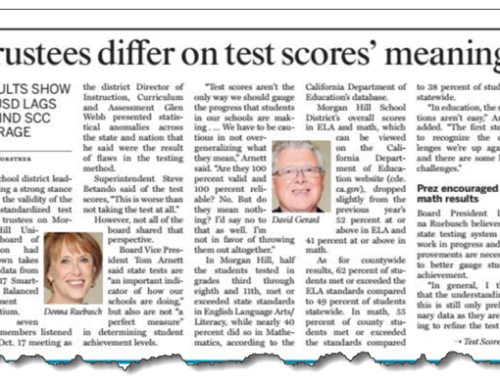Let me know if this surprises you. I don’t believe in data-driven decision-making. In fact, when I hear someone affirm this phrase, my b.s. detectors start ringing. When does data ever drive anything? People drive things. And passion drives people (let us hope).
The desire to eat well drives me to cook a tasty meal. But I am not driven by knives, forks and spoons. These are utensils, a mere means to an end. What drives me is appetite and my particular desire for something that would satisfy it.
The desire to win a World Series is what motivated Theo Epstein to use data intensively, both in his management of the Boston Red Sox and the Chicago Cubs. But did he ever describe himself as driven by data? No, he described himself as driven by the passion to win, and he loved the challenge of doing so with teams that were not considered to be contenders.
The desire to solve the riddle of the structure of DNA led Watson and Crick and their competitors, to reach for clues that would help them solve it. They found evidence from a host of techniques. But did Watson and Crick ever describe themselves as “driven by x-ray crystallography” in their quest for the answer?
To be “data-driven” is to embrace the means, not the ends. There’s something suspicious about that to me, as if someone’s hiding their real motivation.
What drives education leaders, I would conclude after 20 years of working for over 240 districts, is the desire to solve tough riddles for the benefit of kids’ education. If they could do that with a crowbar, they’d use a crowbar. But other tools are more useful, in the end. And data is one of those tools, once shaped into evidence.
Education leaders look for evidence to solve riddles. From data, guided by an insight, they assemble that evidence into a solution. When they need to persuade others to support them, they summon that evidence.
I believe this is data’s place in the world. Data is just a component element in the construction of evidence. In the school world, data is often just a measured observation of human activity. We can now do this on a large scale at low cost because of the prevalence of computing power, and the ready availability of massive quantities of data.
I can only hope that no education leader is “driven” by data. I would rather work with a leader who is student-driven, who distrusts received wisdom, who wants evidence before reaching conclusions … someone driven by the desire to:
- put resources to their best possible use … or
- incentivize the best teachers to stay and the worst to leave … or
- be persuasive enough to get voters to approve a parcel tax.
All those are far more believable motivations, and I would guess, make for stronger leaders.






